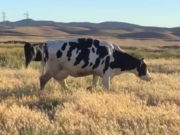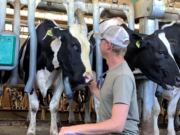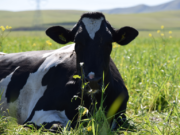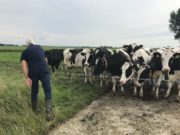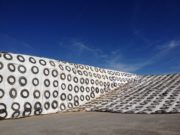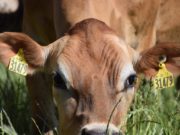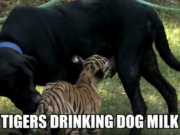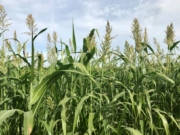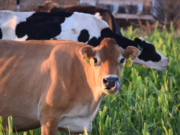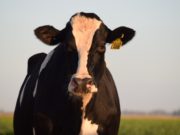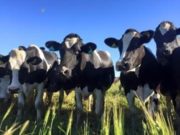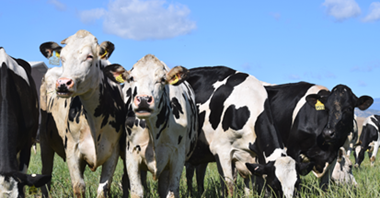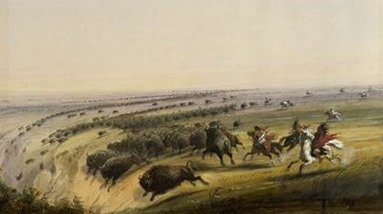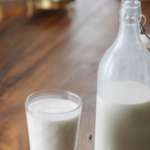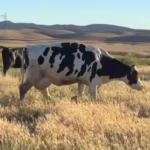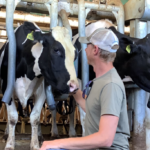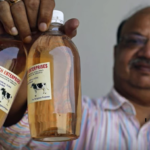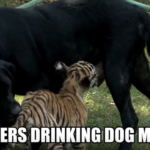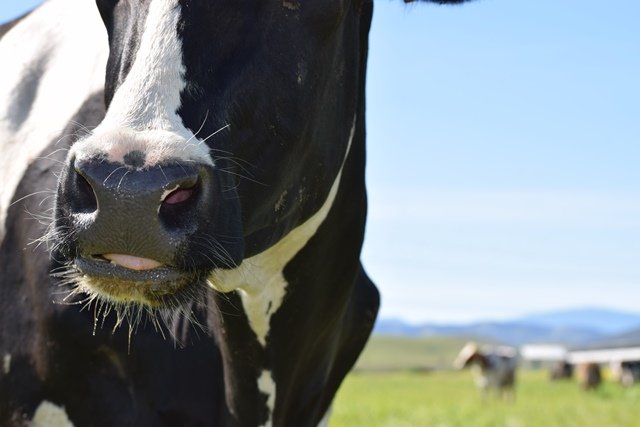
Do you believe in “factory farms”? Should a modern farm be called a factory
Growing up on our family’s farm, I never realized I lived on a factory farm. People in the city informed me that we were living on a factory farm, even though it was the same very farm my grandfather started in the 1970s.
My grandpa was able to grow the farm thanks to new innovations and technology. Universities had found better ways to take care of cows, there were better ways of storing feed, and new milking machines could milk cows faster than any time in history. Better technology has allowed farms to do more with less.
Does improving the farm mean our farm should be called a factory farm. I find the term offensive.
Farm Diversity
In a country that celebrates diversity, it’s strange to me that farms don’t get the same treatment. There are all sorts of farms – big, small, medium – they are all different sizes but what is wrong with differences like this. Is farm diversity bad?
If we use a term like “factory farm” to stereotype farms, we are framing these farms to be bad. Aren’t stereotypes one of the primary reasons racism exists. It is unfair to judge and label.
Like people, no farm is actually the same.
There are many differences because farms have a people elements to them. Overgeneralizing that all farms are the same is not realistic – and nobody likes to be stereotyped.
Small farms are valuable to our society, and the backbone of our American economy. Large farms do just as good a job at taking care of animals. Large farms often can do a better job taking care of animals because they have more resources. With farm margins shrinking, it’s harder for small farms to invest into their operations while supporting the family. There is less to invest in the farm. Large farms usually have a few more hired hands to help take care of the cows and can afford to spend on new innovations that make the cows lives better.
The size of the farm doesn’t dictate how well or poorly the cows are being treated.
These cows are enjoying a meal protected by the barn shade and cooling mist in the middle of the California summer at 105 degrees Fahrenheit.
Fear Factor – Wordology
“Factory Farm” is an anti-farm activist term. The problem with wordsmithing like this is that it spreads falsities without any real evidence. “Factory” farm conjures images of a heartless place with little or no human emotion. This can hardly be true though since many farms are family owned and operated. 99% of farms are owned by families. Dairy farms are still the most family involved places in our modern society. (Source)
I used to watch a show called “Bizarre Foods” where the host would always try unusual foods in different countries. To many, the foods he tried would be considered “gross.” They were not gross to the locals, but because our culture is not accustomed to eating them it seems bizarre. That is the power of perspective.
Anti-farm people want you to be grossed out, they want you to believe bizarre things – So they frame a fear narrative.
Factory farm is a fear based definition of what farms are. It is not reality, just a negative stereotype. Someone trying to influence your thinking from a fear based level. A lot of anti-farm folks use wordsmithing to craft a negative mental image in your mind to get you to believe cows are not being treated well. But that is the whole purpose of using these terms – because the real facts don’t support their myths. They need you to buy into a fear based definition without looking at the whole picture.
These types of labels do not give a real view but cause you to have an opinion before even learning more.
Motivating Factors
If you are still thinking that “factory farms” are guilty of treating animals poorly, let’s consider some fundamental factors to why this cannot be true. There are real motivators that motivate farmers to give good care to cows.
- Advancement of knowledge – many people forget that animal science is a degree at universities and many farmers have university degrees in animal sciences. There has been so much research that has gone into learning and understanding cows at a higher level and what makes them happy. Thanks to this progress in knowledge, we know more about the cow than any other time in history. There has been a lot of innovation in the ways farms take care of cows and the practices, facilities, and care has all evolved around the simple concept – how can we treat cows better.
- Karmic Justice – Interestingly- when you treat cows well, they are more productive. This is a kind of karmic justice in the universe that ensures cows are treated well. Treat cows poorly and your cows will not perform causing you to go out of business. Treat the cows well and your farm will be productive
- Economics – Even if a farmer was only in it for the money, there is a good economic incentive to do the right thing. And with so much research and technology that has helped us find new ways to better care for cows, it is easy to say that cows are having much better lives than anytime in history. Poorly treated cows do not make the most money. Happy cows make the most milk
What sort of thinking is this whole concept of factory farms anyways? If you believe that most farms don’t take good care of cows, what does that say about your thinking- Humanity is more evil than me. Nobody can treat animals as good as I can. Cows would be happier with no care. Do you think people work on farms with the purpose to beat cows? Do you think everyone  else in society is that hateful?
else in society is that hateful?
If farms have a people element to them, I think they must love what they do. Passion is the best motivator in life and with so much work on the farm, you need to draw that motivation from somewhere. I think farmers (as a whole) are animal people, meaning they love taking care of animals. That is why they have spent their lives on the farm with animals.
Which is more motivating – love or hate. If you hate what you’re doing, it will not last long. A farmer who hates animals will not have animals long. A farmer who has a real passion for animals will love to take care of them and do it every day. Love is more motivating than hate.
While there are plenty of people who do cruel things in this world, there are more people doing the right thing. There are good reasons to have faith in humanity.
Are Farms Today Unnatural
But can’t we just let cows be cows.
We want our food to be natural, in natural environments, but we ourselves don’t want to live in natural environments.
Thinking about the naturalness of humanity, we live in cities with little access to touching the real soil. We live in a world of concrete and pavement. Our houses and offices are artificial environments, climate controlled heating and AC. We work in places with artificial lighting and walk in parks with non-native plants. We communicate with our friends and family through boxes -cell phone and computers. What is natural about human life these days, but we want our cows to live in natural environments.
Many of us have forgotten that mother nature is not always so hospitable – the elements rain, wind, snow, hail, heat all can take a damaging toll on the farm. A modern farm is designed to give the cows shelter from these deadly forces. Grass doesn’t grow all year around – the seasons- so there are feed storage methods that allow these grasses to be stored year around. Even technologies like medicine have allowed farms to be able to save more cows from death. Farms are trying to moderate the extremes and give the cows a better life than they would have in nature.
Perhaps it’s our disconnection from nature that has allowed us to have these thoughts that nature is a wonderful place to be. It is a wonderful place to be – just not every day. Giving cows some of the comforts of modern day life is the right thing to do, especially since it makes their lives better.
Farms can augment a natural environment with the comforts of modern cow life. It is just managing the balance of how much access to the natural environment the cows should have- if this is important to you support the farmers who are making efforts to allow the cows more access to the natural environment.
But are farms are too crowded
On a recent trip to Los Angeles, I looked out the window from our plane as we neared the runway for LAX. Nothing but houses upon houses. What a terrible place to live I thought. You can barely see any separation between cities, they all blend together. How can people live in conditions like this? So many people, all crowded together.
Then I realized this is all perspective. We think of crowded from our perspective. We, humans, enjoy being alone and don’t always have the group mentality.
I don’t think cows are bothered living with many herdmates. Cows are herd animals and enjoy living in groups. Our perspective that cows need to be in small herds is a limited view because some cows probably do enjoy living with a lot of friends. Just like some people living in the city are perfectly happy there.
I’m sure cows have more space to roam than many people. Even those “mega” farms pale in comparison population wise to most cities around the world. A “mega” farm may have 20,000 cows, but a “mega” city has 20,000,000 people.
Are people in big cities worse off than people in small cities. That point may be debatable, but it comes down to the basics.
Are the basics present or not- if clean water, fresh food, good care, an abundance of sunshine, and fresh air are all in good supply, the size of a farm shouldn’t matter.
These cows have the whole pasture but enjoy being bunched up with friends. It is the way of the herd
Cattle living naturally on the Texas plain in large populations. Cows are herd animals; they congregate, they are social animals
The buffalo herds were so dense in early America it caused a large problem for the trains in the 1800s causing long delays waiting for buffalo to pass.
Prior to the 1800s – it’s estimated that there were up to 80 million buffalo living on the N. American plains. (compared to the 9.3 million dairy cows that are in the U.S. today) The buffalo lived in dense populations even though they had plenty of space to roam. Dense populations are not unnatural for herd animals.
But you must think – when did our culture come to revile factories as something evil. As if a factory- the organizations and people who make real goods – is viewed as a bad part of society. The factories of past built America into the Superpower that is today. Factories have made things that make our lives better. They have allowed our society to evolve to a higher level. They have allowed people to have affordable access to many of the technologies and comforts we have today.
What do you think?
Let’s continue the conversation below

